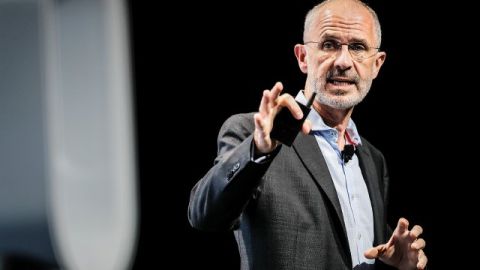Volvo believes EVs will reach price parity with their gas-powered counterparts by 2025
Electric vehicles (EVs) are going to reach price parity with their conventional gas-powered counterparts as soon as 2025, Volvo CEO Jim Rowan predicted at a recent event in Stockholm, Sweden.
Predicting the future of electric cars and SUVs, CEO Rowan said suggested that manufacturers should try to find a way to produce affordable EVs without relying on government subsidies for success. He went on to say that EVs can really cost about the same as today's ICE equivalents within two to three years.
According to a report published in Automotive News Europe, Rowan said, “We think we get [to price parity] ... around 2025, where there'll be enough technology that's driving down cost on the battery. Technology will drive range up. Fewer batteries, but more range, at less cost — we'll get there."
Manufacturers have long been claiming that electric cars will become cheaper as battery prices will come down and production will ramp up, leading to economies of scale. Thus far, the Covid-19 pandemic, shortage of semiconductor chips, and high prices of gas haven’t allowed EV prices to come down. In fact, EV prices have gone up in the past couple of years.
Rowan also admitted that high price of batteries is one of the main reasons behind hefty prices of EVs, but rather than talking about bringing down the prices of EV batteries down in general, he cited the need for fewer batteries for sufficient driving range owing to advancements in technology.
As batteries are the most expensive component of an EV, Rowan’s comments make plenty of sense. Better technology will not only help manufacturers to decrease the weight of the zero-emission vehicles, but also enable them to slash down their costs.
Rowan also revealed the luxury car brand is preparing to introduce a "city car" style electric crossover in 2023. Smaller EVs are expected to help the company boost its sales and reduce prices.
There is no doubt that EVs currently cost far higher than their gas-powered counterparts. The 2022 Volvo XC90 starts at just over $50,000, but the top-end version of the mid-size luxury SUV sets the buyer back by well over $70,000. The upcoming all-electric EX90 will cost slightly less than $80,000 in a well-loaded configuration. While the federal tax credit of up to $7,500 is there to provide some financial relief to buyers, it now depends on harsher conditions of the Biden Administration's Inflation Reduction Act (IRA).
